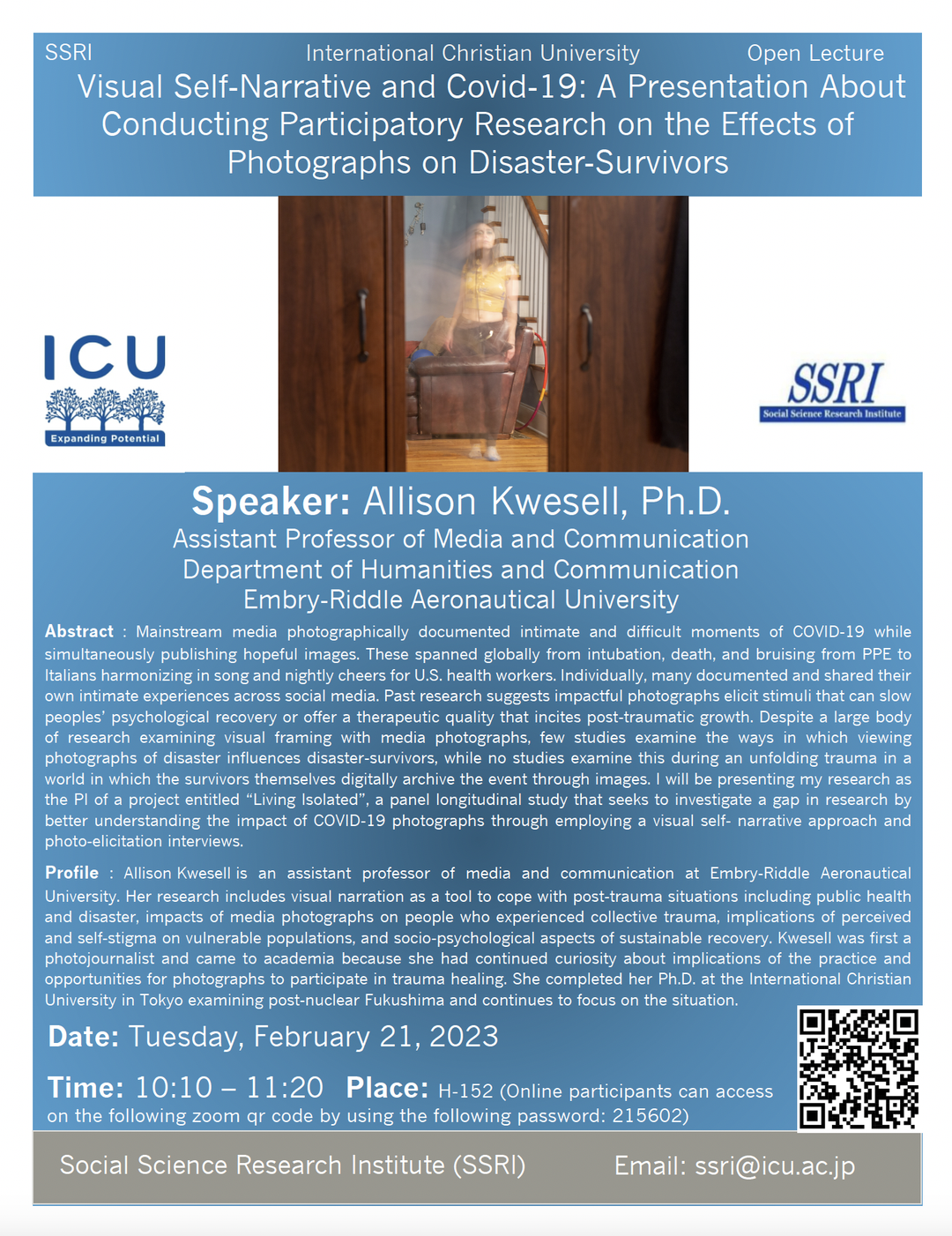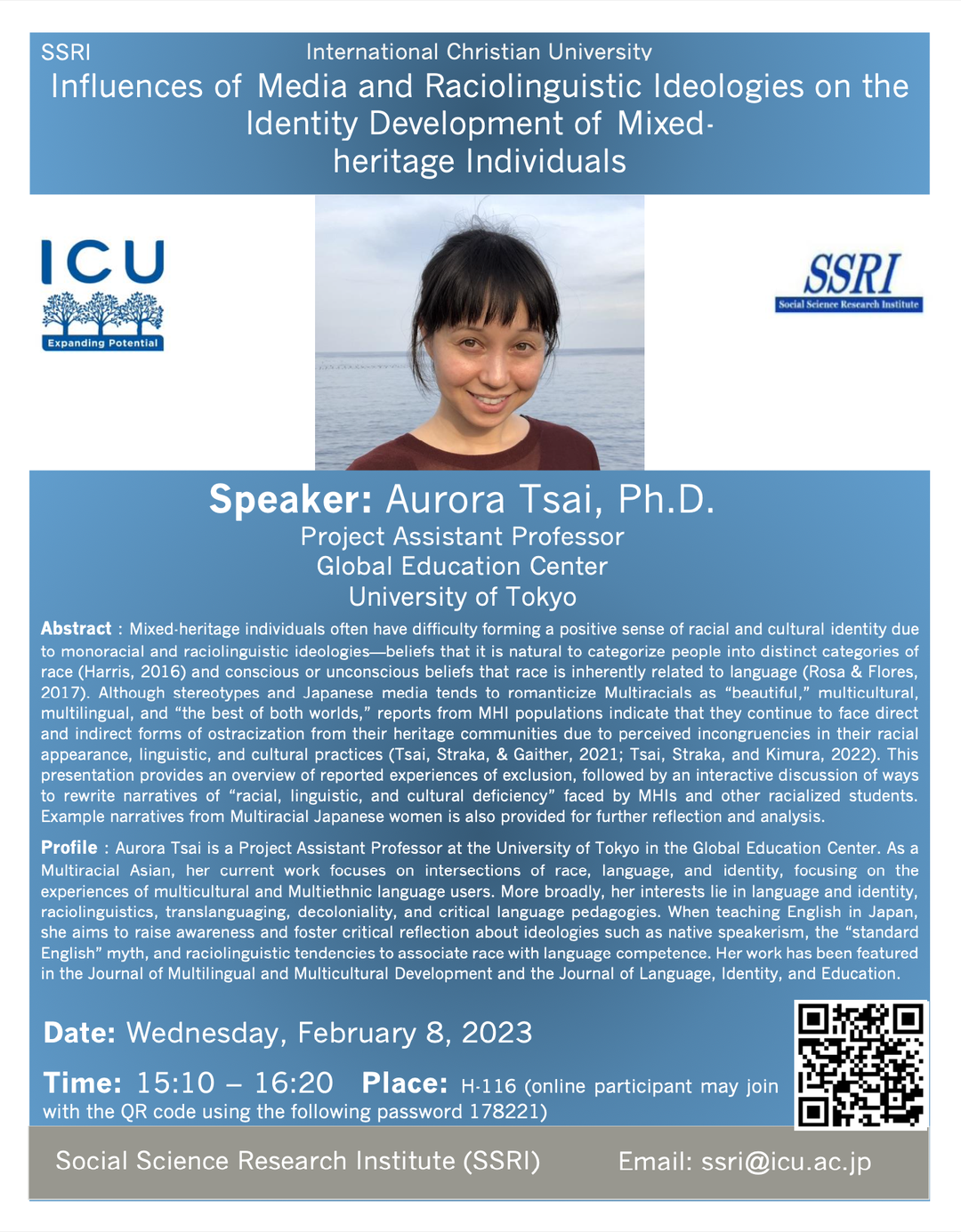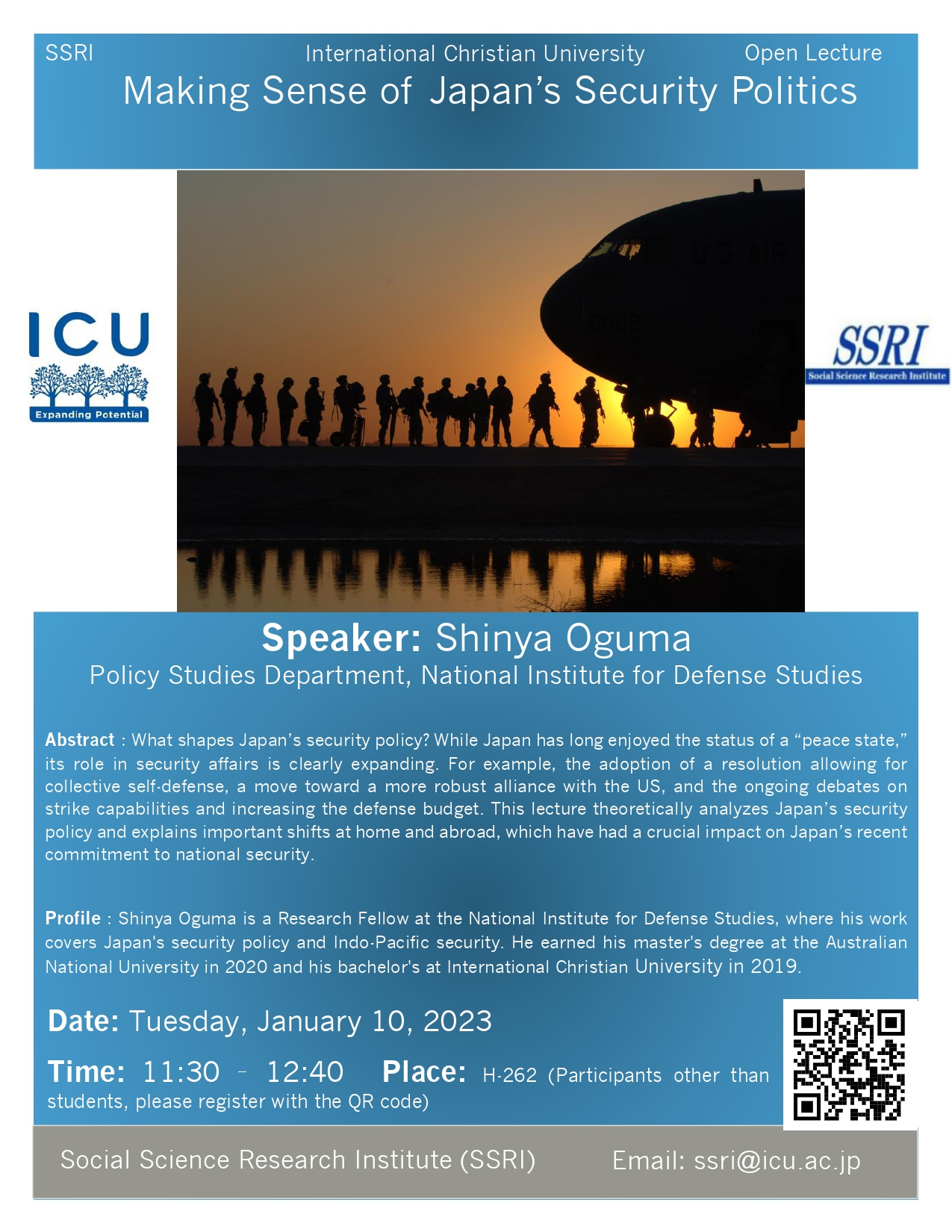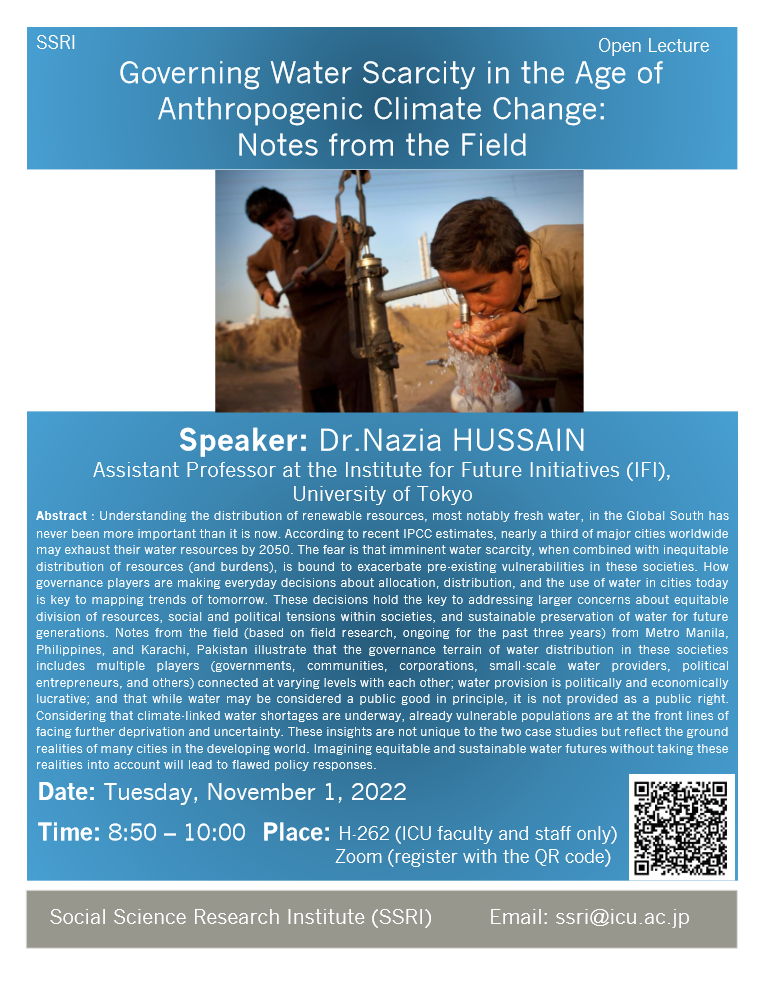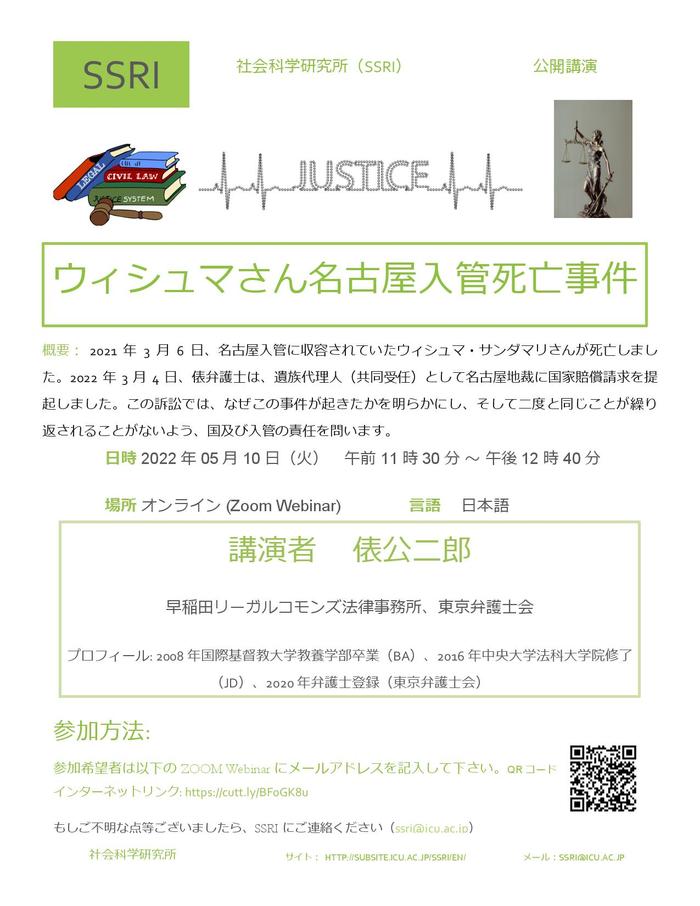AY2022 Open Lecture
Open Lecture (02/21) Visual Self-Narrative and COVID-19
Speaker: Dr. Allison KWESELL
Assistant Professor, Department of Humanities and Communication, Embry-Riddle Aeronautical University
Date: Tuesday, February 21, 2023
Time: 10:10 - 11:20 Place: H-152 (Online participants can access from the QR code below)
Open Lecture (02/08) Influences of Media and Raciolinguistic Ideologies on the Identity Development of Mixed-heritage Individuals
Speaker: Dr. Aurora TSAI
Project Assistant Professor, Global Education Center, University of Tokyo
Date: Wednesday, February 8, 2023
Time: 15:10 - 16:20 Place: H-116 (Online participants can access from the QR code below)
Open Lecture (01/10) Making Sense of Japan's Security Politics
Speaker: Mr. Shinya OGUMA
Research Fellow, Policy Studies Department, National Institute for Defense Studies
Date: Tuesday, January 10, 2023
Time: 11:30 - 12:40 Place: H-262 (Register with the QR code below)
Open Lecture (11/01) Governing Water Scarcity in the Age of Anthropogenic Climate Change: Notes from the Field
Speaker: Dr. Nazia HUSSAIN
Assistant Professor at the Institute for Future Initiatives (IFI), University of Tokyo
Date: Tuesday, November 1, 2022
Time: 8:50 - 10:00 Place: H-262 (ICU faculty and staff only), Zoom Webinar (Open to public, Register with the QR code below)
Abstract:Understanding the distribution of renewable resources, most notably fresh water, in the Global South has never been more important than it is now. According to recent IPCC estimates, nearly a third of major cities worldwide may exhaust their water resources by 2050. The fear is that imminent water scarcity, when combined with inequitable distribution of resources (and burdens), is bound to exacerbate pre-existing vulnerabilities in these societies. How governance players are making everyday decisions about allocation, distribution, and the use of water in cities today is key to mapping trends of tomorrow. These decisions hold the key to addressing larger concerns about equitable division of resources, social and political tensions within societies, and sustainable preservation of water for future generations. Notes from the field (based on field research, ongoing for the past three years) from Metro Manila, Philippines, and Karachi, Pakistan illustrate that the governance terrain of water distribution in these societies includes multiple players (governments, communities, corporations, small-scale water providers, political entrepreneurs, and others) connected at varying levels with each other; water provision is politically and economically lucrative; and that while water may be considered a public good in principle, it is not provided as a public right. Considering that climate-linked water shortages are underway, already vulnerable populations are at the front lines of facing further deprivation and uncertainty. These insights are not unique to the two case studies but reflect the ground realities of many cities in the developing world. Imagining equitable and sustainable water futures without taking these realities into account will lead to flawed policy responses.
Open Lecture (5/10) Justice for Wishma
Speaker: Attorney Kojiro Tawara
Date: Tuesday, May 10, 2022
Time: 11:30 - 12:40 Place: Online (Zoom webinar)
